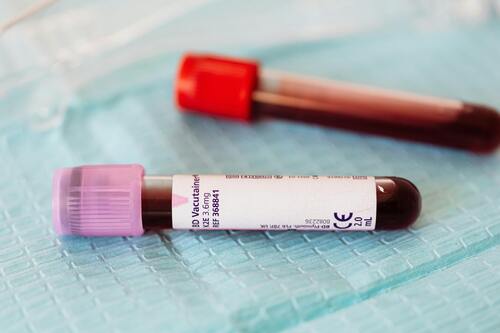Low Platelet count

Q: I have been diagnosed with low platelets. Is it OK to dive?
Before you dive, you and your doctor should consider some possible effects of having a low platelet count. In some cases, it may affect the body’s ability to clot properly in response to injury. Cuts and bruises are common injuries in almost any recreational outdoor activity, so you should take extra care to avoid cuts and scrapes.
Middle-ear and sinus barotraumas are the most common dive injuries. They are typically self-limited, because normal coagulation stops the internal bleeding, giving divers time to seek professional medical treatment. When a diver has issues with clotting, pressure on the wound will control bleeding. Since pressure is not possible with internal bleeding, however, ordinary ear, nose, and throat barotraumas can become medical emergencies.
Decompression injuries add another dimension to bleeding risk, as bubble formation and growth cause microscopic tissue damage through mechanical tissue disruption and normal inflammatory processes. Coagulation can control these micro-bleeds, and recompression therapy can revert bubble growth, wash out inert gas, and minimize inflammation. When a diver has clotting issues, however, the micro-bleeding caused by bubbles can reduce the effectiveness of recompression therapy. This problem can be critical in severe cases, such as spinal cord involvement or an arterial gas embolism.
— Ben Strelnick, NREMT, W-EMT
Before you dive, you and your doctor should consider some possible effects of having a low platelet count. In some cases, it may affect the body’s ability to clot properly in response to injury. Cuts and bruises are common injuries in almost any recreational outdoor activity, so you should take extra care to avoid cuts and scrapes.
Middle-ear and sinus barotraumas are the most common dive injuries. They are typically self-limited, because normal coagulation stops the internal bleeding, giving divers time to seek professional medical treatment. When a diver has issues with clotting, pressure on the wound will control bleeding. Since pressure is not possible with internal bleeding, however, ordinary ear, nose, and throat barotraumas can become medical emergencies.
Decompression injuries add another dimension to bleeding risk, as bubble formation and growth cause microscopic tissue damage through mechanical tissue disruption and normal inflammatory processes. Coagulation can control these micro-bleeds, and recompression therapy can revert bubble growth, wash out inert gas, and minimize inflammation. When a diver has clotting issues, however, the micro-bleeding caused by bubbles can reduce the effectiveness of recompression therapy. This problem can be critical in severe cases, such as spinal cord involvement or an arterial gas embolism.
— Ben Strelnick, NREMT, W-EMT
Categories
2025
2024
February
March
April
May
October
My name is Rosanne… DAN was there for me?My name is Pam… DAN was there for me?My name is Nadia… DAN was there for me?My name is Morgan… DAN was there for me?My name is Mark… DAN was there for me?My name is Julika… DAN was there for me?My name is James Lewis… DAN was there for me?My name is Jack… DAN was there for me?My name is Mrs. Du Toit… DAN was there for me?My name is Sean… DAN was there for me?My name is Clayton… DAN was there for me?My name is Claire… DAN was there for me?My name is Lauren… DAN was there for me?My name is Amos… DAN was there for me?My name is Kelly… DAN was there for me?Get to Know DAN Instructor: Mauro JijeGet to know DAN Instructor: Sinda da GraçaGet to know DAN Instructor: JP BarnardGet to know DAN instructor: Gregory DriesselGet to know DAN instructor Trainer: Christo van JaarsveldGet to Know DAN Instructor: Beto Vambiane
November
Get to know DAN Instructor: Dylan BowlesGet to know DAN instructor: Ryan CapazorioGet to know DAN Instructor: Tyrone LubbeGet to know DAN Instructor: Caitlyn MonahanScience Saves SharksSafety AngelsDiving Anilao with Adam SokolskiUnderstanding Dive Equipment RegulationsDiving With A PFOUnderwater NavigationFinding My PassionDiving Deep with DSLRDebunking Freediving MythsImmersion Pulmonary OedemaSwimmer's EarMEMBER PROFILE: RAY DALIOAdventure Auntie: Yvette OosthuizenClean Our OceansWhat to Look for in a Dive Boat
2023
January
March
Terrific Freedive ModeKaboom!....The Big Oxygen Safety IssueScuba Nudi ClothingThe Benefits of Being BaldDive into Freedive InstructionCape Marine Research and Diver DevelopmentThe Inhaca Ocean Alliance.“LIGHTS, Film, Action!”Demo DiversSpecial Forces DiverWhat Dive Computers Don\'t Know | PART 2Toughing It Out Is Dangerous
April
